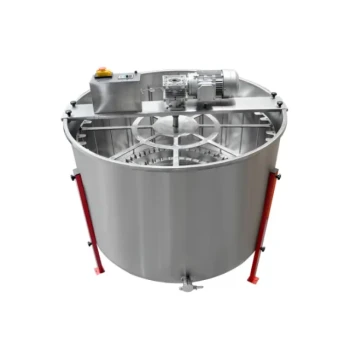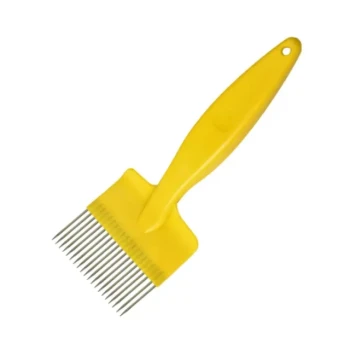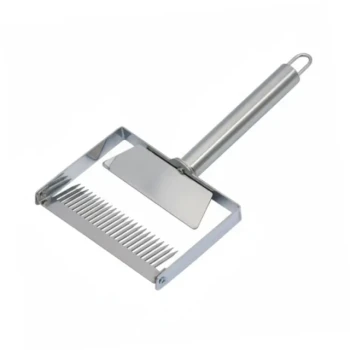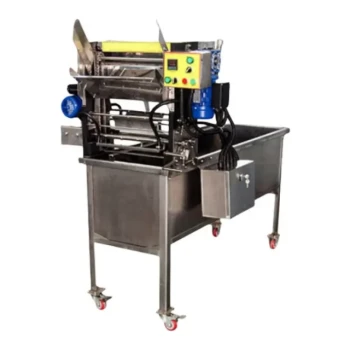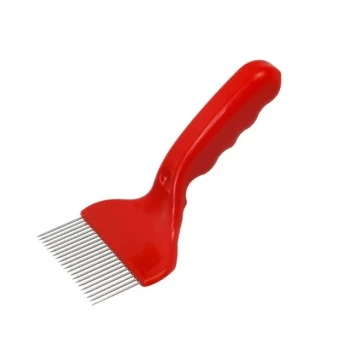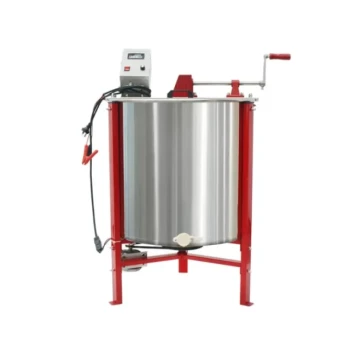As a rule of thumb, using soap to clean the inside of a honey extractor is not recommended. Any soap residue left behind, no matter how small, can contaminate future honey batches. This residue can taint the flavor and compromise the natural purity of your harvest.
The primary goal when cleaning a honey extractor is to remove all honey residue without introducing foreign contaminants. Because soap is difficult to rinse away completely and can spoil the taste of honey, the safest and most effective cleaning practices rely on water, pressure, or the bees themselves.
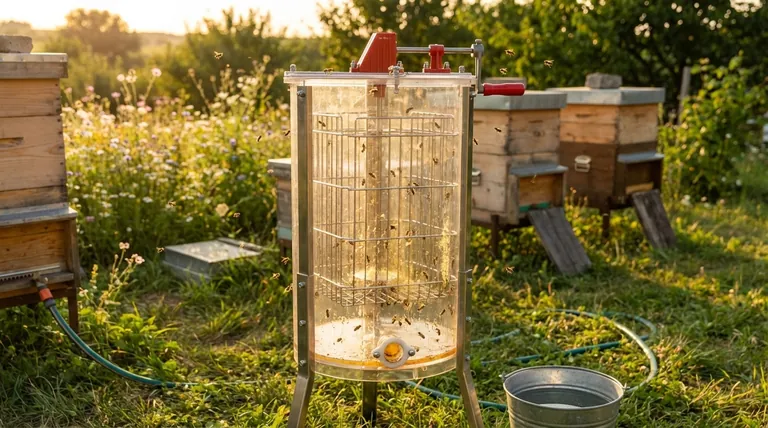
Why Soap Is a Problem for Honey Equipment
Before detailing the correct cleaning methods, it's critical to understand why a common cleaner like soap is ill-suited for this specific task. The unique properties of honey and the design of the equipment create a high risk of contamination.
The Risk of Residue Contamination
Honey is highly absorbent and will readily take on the flavors and aromas of its environment. Even a microscopic film of soap residue left on the extractor's drum, basket, or honey gate can impart a chemical taste to the next batch of honey that passes through it.
The Challenge of Complete Rinsing
A honey extractor contains numerous seams, bearings, and mechanical parts. It is exceptionally difficult to ensure that every trace of soap has been rinsed from these complex areas. What appears clean to the eye can still harbor enough residue to cause issues.
Recommended Cleaning Methods: A Step-by-Step Guide
The correct cleaning process focuses on removing the sticky honey residue safely and effectively. The best time to clean is immediately after extraction, before the honey has a chance to crystallize and harden.
Step 1: Remove Excess Honey
First, allow the extractor to drain completely through the honey gate. Use a silicone spatula to scrape down the interior walls and basket, collecting as much of the remaining honey as possible. This honey is perfectly good to consume.
Step 2: Clean the Exterior
Use a damp cloth with plain cold or warm water to wipe down the outside of the extractor. This removes any dust, fingerprints, or honey that may have spilled or splattered during the extraction process.
Step 3: Choose Your Interior Cleaning Method
There are three primary methods for cleaning the inside of the extractor, each with its own benefits.
Method A: The Water Rinse
This is the most common and straightforward method. Use a hose or sprayer with warm (not hot) water to rinse the interior thoroughly. The gentle pressure and warm water will dissolve the remaining honey. A soft cloth or sponge can be used to wipe down the surfaces, followed by a final, thorough rinse.
Method B: The Bee Clean-Up
Many beekeepers prefer to let the bees do the work. Place the extractor and its parts outdoors at a safe distance from your hives (and your neighbors). The bees will find the equipment and meticulously clean every last drop of honey from it.
Method C: The Pressure Wash
For a very fast and deep clean, a pressure washer can be used with plain water. This is especially effective if you waited too long and the honey has started to crystallize. You can also take the extractor to a self-service car wash, but you must use the plain water rinse setting only.
Understanding the Trade-offs
Choosing the right method involves balancing convenience with potential risks. Being aware of the downsides is key to protecting your equipment and your bees.
The Risk of Bee Clean-Up
While natural and effective, this method can create a "feeding frenzy" that may excite the bees and could encourage robbing behavior between hives. More importantly, if any of your colonies have a disease like American Foulbrood, this method can potentially spread it to other bees in the area.
The Risk of Pressure Washing
High-pressure water can be very effective, but it can also damage delicate parts of your extractor if not used with care. When using a car wash, there is a significant risk of contamination from waxes and detergents used in their system, so you must ensure you are only using a pure water cycle.
The Limitation of a Simple Water Rinse
This method is incredibly safe but can be labor-intensive if the honey has already hardened. It requires immediate action after extraction for the best results.
Making the Right Choice for Your Goal
Your best cleaning strategy depends on your equipment, location, and sanitation needs.
- If your primary focus is food safety and simplicity: A prompt and thorough rinse with warm water and rags is the most reliable method.
- If you prefer a natural, hands-off approach in a safe location: Letting the bees clean the equipment is an excellent and efficient option.
- If your priority is speed and power for hardened honey: A pressure washer using only water offers the most effective deep clean, provided you are careful.
Ultimately, protecting the purity and flavor of your next harvest is the most important factor in your cleaning decision.
Summary Table:
| Cleaning Method | Best For | Key Consideration |
|---|---|---|
| Water Rinse | Food safety & simplicity | Requires immediate action after extraction |
| Bee Clean-Up | Natural, hands-off approach | Risk of spreading disease or robbing behavior |
| Pressure Wash | Speed & power for hardened honey | Can damage parts; must use pure water only |
Keep your honey pure and your operation efficient with the right equipment. HONESTBEE supplies commercial apiaries and beekeeping equipment distributors with high-quality, easy-to-clean honey extractors and supplies through our wholesale-focused operations. Ensure the integrity of every harvest—contact our experts today to discuss your needs!
Visual Guide
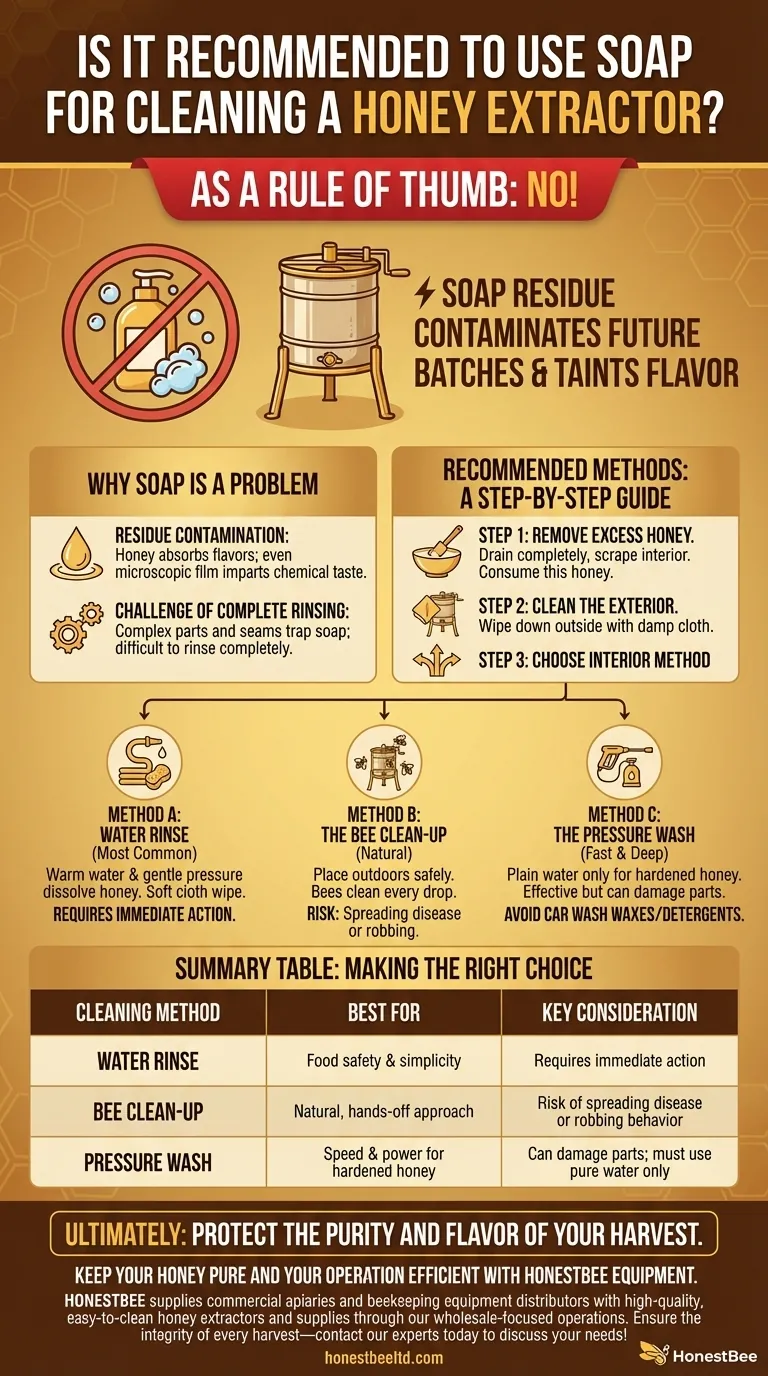
Related Products
- HONESTBEE 3-Frame Manual Acrylic Honey Extractor
- HONESTBEE 72 Frame Industrial Electric Honey Extractor for Beekeeping
- HONESTBEE 6 Frame Three Use Electric Honey Extractor for Beekeeping
- 8-Frame Electric Self-Reversing Honey Extractor Spinner for Commercial Honey Extraction Equipment
- 2 Frame Stainless Steel Manual Honey Spinner Extractor for Beekeeping
People Also Ask
- What equipment is used for honey harvest? Essential Tools for Every Beekeeper
- What is the principal idea in harvesting honey? A 3-Step Guide to a Responsible Harvest
- What is the most common method for cleaning a honey extractor? Protect Your Honey & Equipment
- How to extract honey by hand? A Guide to Crush & Strain vs. Manual Extractors
- What size honey extractor do I need? Match Frame Capacity to Your Hives for Maximum Efficiency





